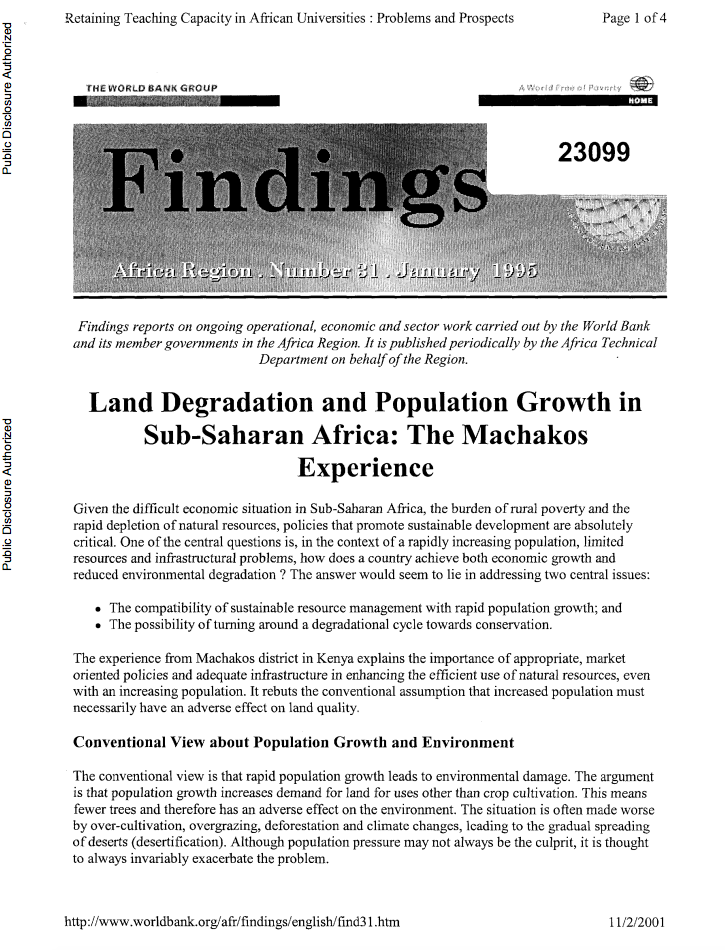Land Degradation and Population Growth in Sub-Saharan Africa : The Machakos Experience
An issue which has generated much
concern has been the potential link between low incomes and
resource degradation. This report presents the results of a
study which investigated this question. Machakos District is
a relatively low income and agriculturally marginal district
in Kenya. Before World War II the colonial administration
was concerned that land degradation was becoming severe
under the pressure of population, aggravated by drought. The


